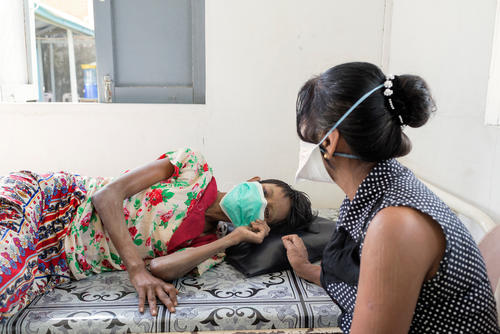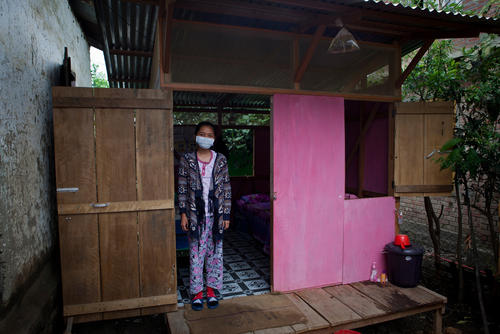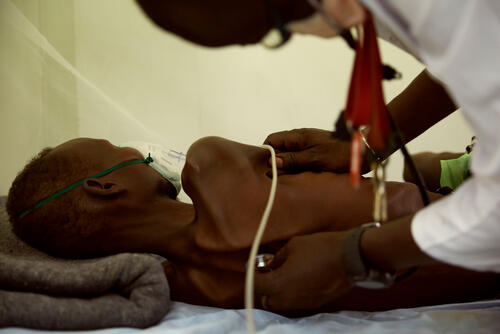- A decline in funding for HIV and TB, while asking affected countries to pick up more of the financial burden, could result in an increase in new cases for both diseases, MSF says.
- We’ve released a report looking at the funding shortfalls and limited resources in nine countries that are having a negative knock-on effect in the diagnosis and treatment of the diseases.
- Ahead of a Global Fund funding conference, donor countries must urgently increase HIV and TB funding.
Geneva/Brussels – After a decade of strong commitments to fight the twin epidemics of HIV and tuberculosis (TB), a decline in international funding and the rapid shifting of the financial burden to affected countries is in danger of reversing lifesaving gains and causing an ‘epidemic rebound’ in some countries, warns a new report released by Médecins Sans Frontières (MSF) ahead of the Global Fund’s funding replenishment conference.
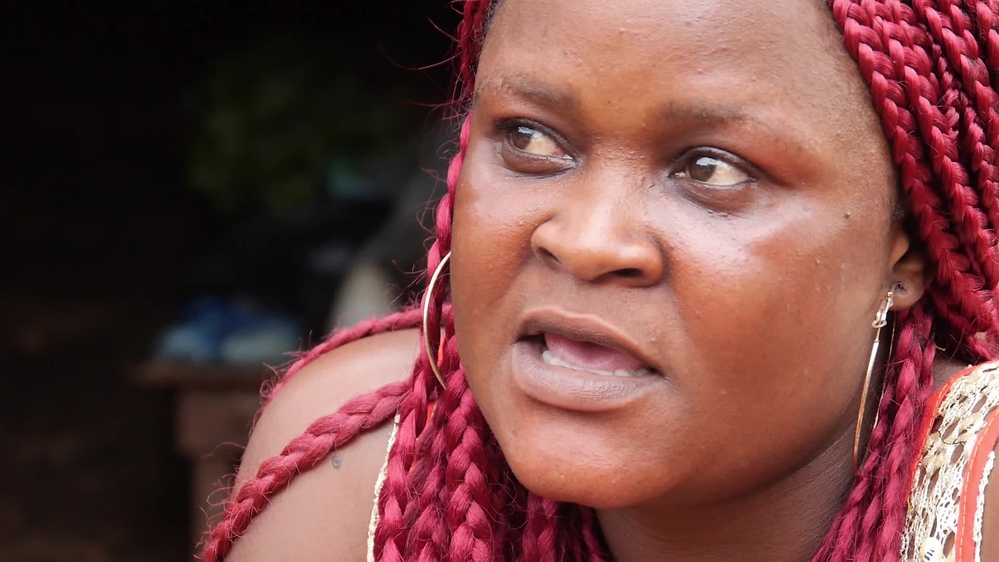
The impact of insufficient HIV funding in Central African Republic
First funding decline in a decade
The goal of ending HIV and TB is still far from being achieved: together the diseases still kill upwards of two million people each year. Despite this, donor and domestic funding for HIV programmes declined in 2018 for the first time in more than a decade, falling by US$1 billion in low and middle-income countries. Meanwhile, the funding gap for TB programmes widened further, reaching $3.5 billion per year, according to UN figures.
“This recent downward trajectory in funding comes at a critical juncture for the HIV and TB response,” says Dr Mit Philips, one of the contributing authors of the report. “While gains made in countries such as Mozambique are at significant risk of backtracking, there is an even higher risk that countries in regions such as West and Central Africa, which are already lagging behind in the HIV and TB response, may see the situation deteriorate even further.”
MSF teams… witness how patients are suffering and…The number of people on lifetime HIV treatment keeps on expanding, but the money available to support them keeps on shrinking.Dr Maria Guevara
Based on studies in nine countriesCountries in the report cover: Central African Republic, Democratic Republic of Congo, Eswatini (formerly Swaziland), Guinea, Kenya, Malawi, Mozambique, Myanmar, Zimbabwe. where MSF runs HIV and TB programmes, the report Burden sharing or burden shifting? documents how international funding shortfalls and insufficient domestic resources available are already causing wide-ranging gaps in HIV and TB diagnosis, prevention and care services.
They are also causing stockouts of essential medicines and are threatening programmes that target people with specific needs, such as key populations (men having sex with men, transgender people, sex workers, people who inject drugs), migrants and people with advanced HIV.
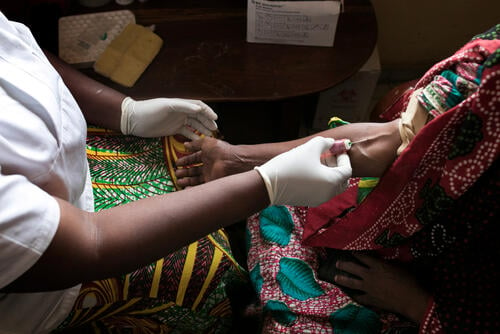
“Every day, MSF teams in these countries witness how patients are suffering and dying from these treatable diseases,” says Dr Maria Guevara, another of the report’s contributing authors. “The number of people on lifetime HIV treatment keeps on expanding, but the money available to support them keeps on shrinking.”
“With not enough drugs or support services available, many people are not starting treatment on time or are forced to abandon treatment altogether,” Dr Guevara said. “Others must dig deep into their pockets to pay for drugs so as not to interrupt their treatment. All of this contributes to increased transmission, higher mortality, more treatment failures and an even higher prevalence of drug resistance – further increasing the cost of care for HIV and TB.”
Donor countries must urgently reverse the recent decline in HIV and TB funding and adapt their approach to the challenges facing their partner countries, now and in the coming years.Dr Maria Guevara
An urgent reality check needed
According to MSF’s report, the impact of current HIV and TB funding gaps are underestimated and likely to increase, as vulnerable countries struggle to compensate for the decline in external financial support. Even where the political will exists to contribute more, many countries are not ready to take on this responsibility in the short term.
“Some of the countries reviewed in this report – such as Democratic Republic of Congo, Guinea and Mozambique – are struggling with conflict or political and economic problems,” says Dr Philips. “Yet they are being put under pressure to swiftly mobilise additional resources for HIV and TB within restricted budgets and with insufficient donor funding. This needs a serious reality check.”
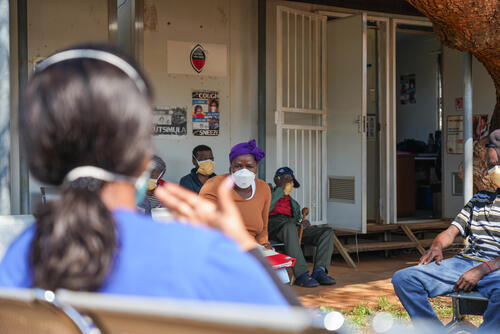
In view of the existing economic and fiscal challenges, the authors of the report call for a comprehensive assessment of countries’ real ability to increase domestic health resources in the short term, given the impact of funding shortfalls on the lives of people living with HIV and TB and the ability of health workers to care for them.
“Sharing the burden of HIV and TB funding can be positive, as it shows that everyone should contribute to an increased resource envelope,” says Dr Philips. “But this approach should be adapted to the reality in each country.”
“Burden sharing should not lead to burden shifting,” Dr Philips continued. “When projections of a country’s capacity to raise domestic resources turn out to be over-optimistic, this puts both health programmes and people’s lives at risk.”
“Donor countries must urgently reverse the recent decline in HIV and TB funding and adapt their approach to the challenges facing their partner countries, now and in the coming years,” says Dr Guevara. “Failing to fix this will undermine past achievements and may lead to an epidemic rebound that will cost many lives. The Global Fund replenishment conference should mark a crucial moment in mobilising the necessary resources to prevent the response from veering further off track.”
Notes
MSF’s report Burden sharing, not burden shifting is based on information from nine countries where MSF runs HIV and TB programmes: Central African Republic, Democratic Republic of Congo, Eswatini (formerly Swaziland), Guinea, Kenya, Malawi, Mozambique, Myanmar and Zimbabwe. It is based on a comprehensive literature review, field analyses and interviews with key informants at both the national and international level.
Following a levelling off period, international assistance for HIV and TB dropped by 9% and 12% respectively between 2017 and 2018. By contrast, domestic funding for HIV has increased gradually over the past decade, but combined resources for HIV for the worst affected countries still fall woefully short. The annual investment of US$26 billion needed to reach the 2030 HIV target reached just US$19 billion in 2018. While the total funds needed for TB programmes were estimated at US$10.4 billion in 2018, just US$6.9 billion was available that year.
MSF provides treatment for HIV and tuberculosis (TB) in more than 20 countries around the world. In 2018, 159,100 people living with HIV were on first-line ARV treatment through MSF programmes, and 17,100 were on second-line treatment. The same year, 16,500 people started on first-line tuberculosis treatment in MSF programmes while 2,840 started on drug-resistant treatment.
The Global Fund to fight AIDS, TB and Malaria is the largest funding mechanism for HIV and TB programmes worldwide. Every three years, its ‘replenishment conference’ brings together donor countries, the private sector and philanthropic foundations to finance HIV, TB and malaria interventions worldwide. This year, the replenishment conference hopes to raise at least US$14 billion for the 2020-22 period.



